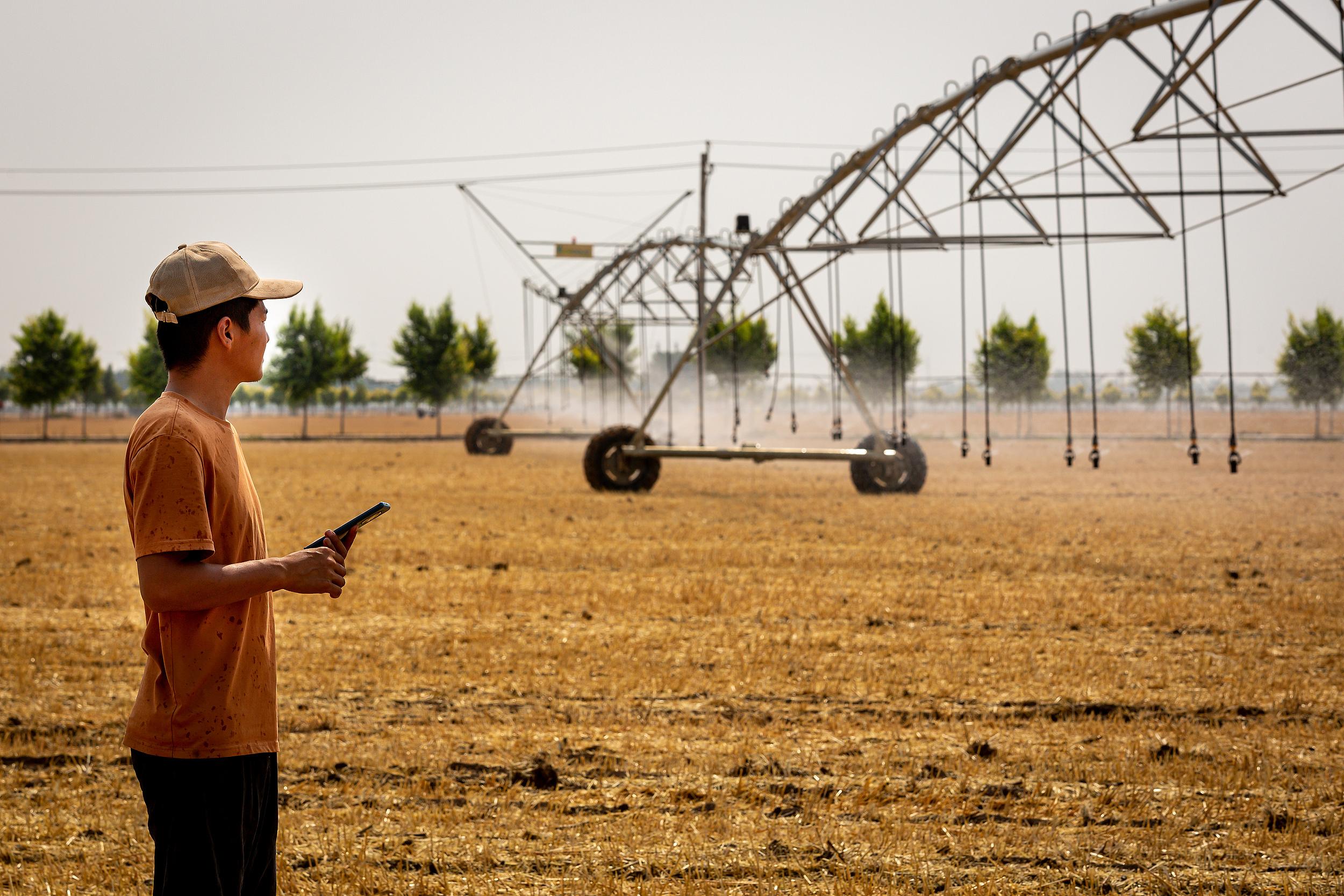Developing Smart Farming Ensures Food Security

Following nine consecutive years of maintaining grain output above 650 million tonnes, China's 2024 grain output is set to produce more than 700 million tonnes for the first time despite extreme weather events, vice minister of the Ministry of Agriculture and Rural Affairs Zhang Xingwang said on October 25.
According to the ministry, the summer grain and early rice harvests have already been completed, with summer grain output totaling 149.78 million tonnes. As of October 24, more than 80 percent of this year's autumn crops have been harvested, signaling a bumper harvest.
It reflects the country's sustained and stable grain production capacity, and provides strong support for consolidating and enhancing the economic recovery and promoting high-quality development.
As one of the world's largest food producers and consumers, China has stepped up efforts to promote food security amid climate change and global market turmoil.
In addition to increasing financial support for food production, the Ministry of Agriculture and Rural Affairs has also introduced a series of policy measures to continuously promote the application of technology in all aspects and fields of the agricultural industry, aiming to improve production efficiency as well as developing smart farming.
Agricultural machinery equipped with the BeiDou navigation satellite system, unmanned driving, and other intelligent equipment has become a symbol of agricultural modernization. According to the International Federation of Robotics, the global agricultural robot market will reach 10 billion U.S. dollars by 2025. Among them, the Chinese market will become the largest growth point.
Recently, an automatic grape-picking robot that can pick a bunch of grapes in one piece every four seconds was displayed at the 31st China Yangling Agricultural Hi-tech Fair. "'Unmanned products' are the general trend of the agricultural industry development," Yin Yuhan, a member of the Xi'an Jiaotong University R&D team, said that based on the intelligent perception technology of deep learning, this robot can be used in orchards with irregular land, saving manpower and improving picking efficiency.
As the integration of modern technologies such as AI, 5G, and big data into the agricultural sector continues to deepen, agricultural infrastructure is also constantly being updated to make field work more efficient. For example, the solar heat collection and release system developed by Northwest Agriculture and Forestry University is installed in a greenhouse, collecting heat during the day and releasing heat at night, greatly increasing the air temperature in the greenhouse. Operating stably in temperatures as low as -40℃, the system has been applied to 110,000 acres in China's Shaanxi, Gansu, Henan and other provinces, achieving a total output value of approximately 5.5 billion RMB.
In Shouguang, known as "Chinese Vegetable Town," the 5G+ agricultural behavior intelligent identification and analysis system integrates 5G+ high-definition video and AI recognition technology. It can automatically and accurately record and analyze agricultural behavior, realize the convenience and electronicization of production records, and provide strong support for establishing an agricultural behavior indicator database, carrying out remote technical services and quality and safety supervision.
China released a five-year action plan to boost food output and accelerate its agriculture industry's digital transformation. The plan, set to run from 2024 to 2028, aims to establish a digital planting technology scheme and create a national agricultural and rural big data platform by 2028, according to the ministry.







